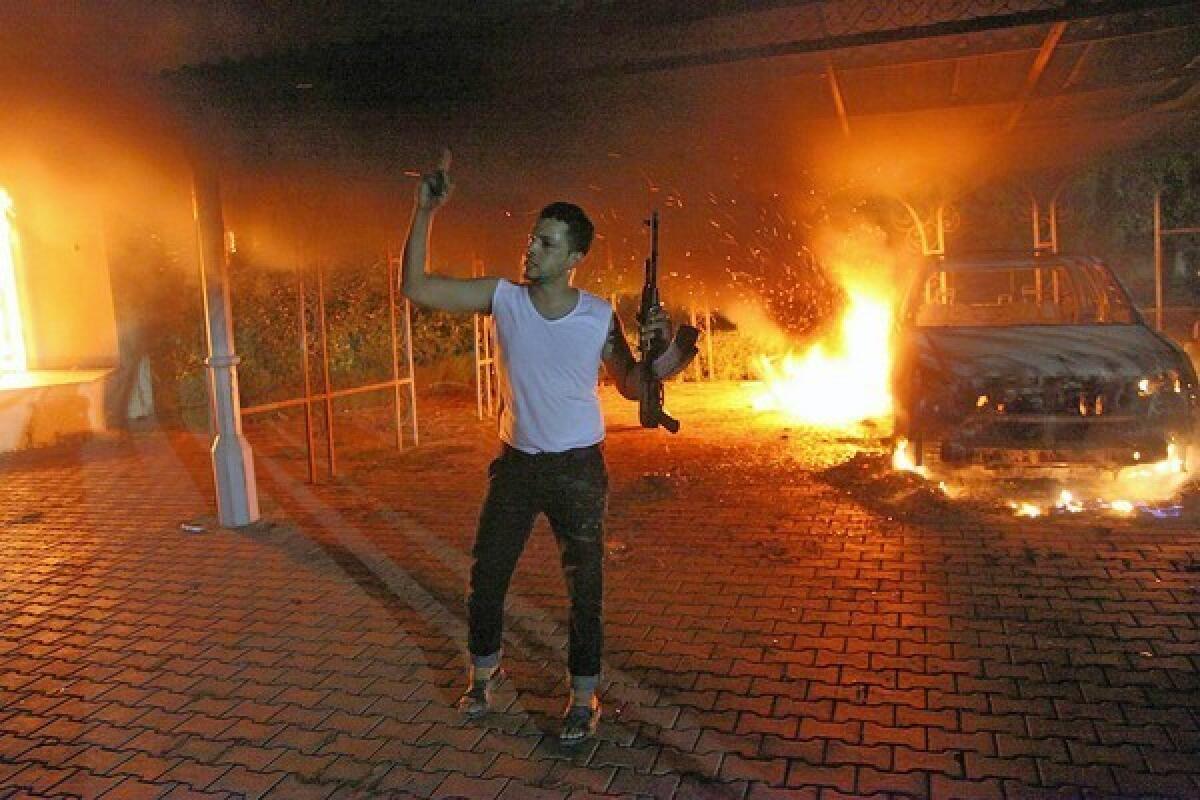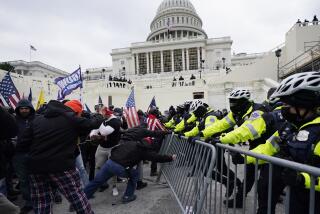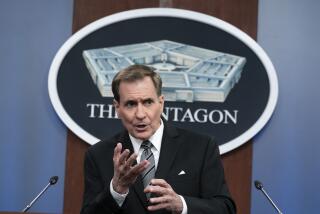Attack on consulate in Libya was act of terrorism, U.S. says

WASHINGTON — The lethal attack on the U.S. Consulate in eastern Libya was “a deliberate and organized terrorist attack carried out by extremists” linked to Al Qaeda and did not stem from a spontaneous riot as first believed, a spokesman for the director of national intelligence said Friday.
In an unusual statement, spokesman Shawn Turner said the U.S. intelligence community had revised its initial assessment that the Sept. 11 attack, which killed the U.S. ambassador and three other Americans, grew out of a protest similar to one in Cairo that day in reaction to a video that denigrated the prophet Muhammad.
“It remains unclear if any group or person exercised overall command and control of the attack, and if extremist group leaders directed their members to participate,” Turner said. “However, we do assess that some of those involved were linked to groups affiliated with, or sympathetic to, Al Qaeda.”
A U.S. intelligence official, who declined to be identified while speaking about internal deliberations, said the statement was an attempt to address criticism about the Obama administration’s changing characterizations of the incident. After first asserting that the attack evolved out of a protest, administration officials this week began acknowledging that U.S. intelligence subsequently had discovered evidence that extremists had been planning to strike the consulate in Benghazi.
The administration’s descriptions changed because the intelligence evolved, the official said. Although CIA personnel were evacuated from Benghazi after the attack, the U.S. has been listening to phone calls, mining Internet chats and interviewing sources to gather intelligence on what happened, officials said this week.
The FBI, which was sent to Libya to investigate, reportedly has not been able to reach Benghazi because the city is deemed too dangerous and has instead been operating out of the U.S. Embassy in Tripoli, the Libyan capital. Officials say the CIA plans to return officers to Benghazi, where it had been running a significant intelligence operation aimed at tracking extremists and weapons.
Local extremists involved in the attacks belonged to a group called Ansar al Sharia, U.S. officials said this week. Those people were in touch with members of Al Qaeda’s North African branch, known as Al Qaeda in the Islamic Maghreb, said the officials, who were not authorized to be named speaking about sensitive intelligence.
The statement is not likely to tamp down growing election-season criticism from Republicans who have accused the administration of deliberately seeking to downplay the nature of the attack that killed Ambassador J. Christopher Stevens and three others. Republicans question how anyone could have thought an hours-long assault with mortars and rocket-propelled grenades could have stemmed from a spontaneous protest.
Eight senior House Republicans, including intelligence committee Chairman Mike Rogers of Michigan and armed services committee Chairman Howard P. “Buck” McKeon of Santa Clarita, also criticized the administration’s response to the Benghazi incident, calling it evidence of a “pre-9/11 mind-set — treating an act of war solely as a criminal matter, rather than also prioritizing the gathering of intelligence to prevent future attacks.”
After the attacks of Sept. 11, 2001, many counter-terrorism officials looked back with regret on the American response to the 1998 Al Qaeda bomb attacks against U.S. embassies in the East African capitals of Dar es Salaam, Tanzania, and Nairobi, Kenya. The U.S. sent the FBI to investigate and later launched cruise-missile strikes against targets in Sudan and Afghanistan.
Osama bin Laden, who masterminded the attacks, escaped the cruise-missile attacks and was indicted criminally for his role, but the U.S. took no further military action to pursue him.
“Clearly, the threat from Al Qaeda and affiliated groups has metastasized; yet we do not appear to be learning from the past,” the Republicans said in a letter to President Obama.
In a Rose Garden statement the day after the attack, Obama — who ordered the raid that killed Bin Laden in Pakistan last year as well as hundreds of drone missile strikes against Al Qaeda militants in Pakistan and Yemen — called what happened in Benghazi “an act of terror” and vowed that “justice will be done.”
White House spokesman Jay Carney this week dismissed the Republican attacks as partisanship.
“Every step of the way, the information that we have provided to you and the general public about the attack in Benghazi has been based on the best intelligence we’ve had and the assessments of our intelligence community,” Carney told reporters Thursday.
More to Read
Sign up for Essential California
The most important California stories and recommendations in your inbox every morning.
You may occasionally receive promotional content from the Los Angeles Times.











